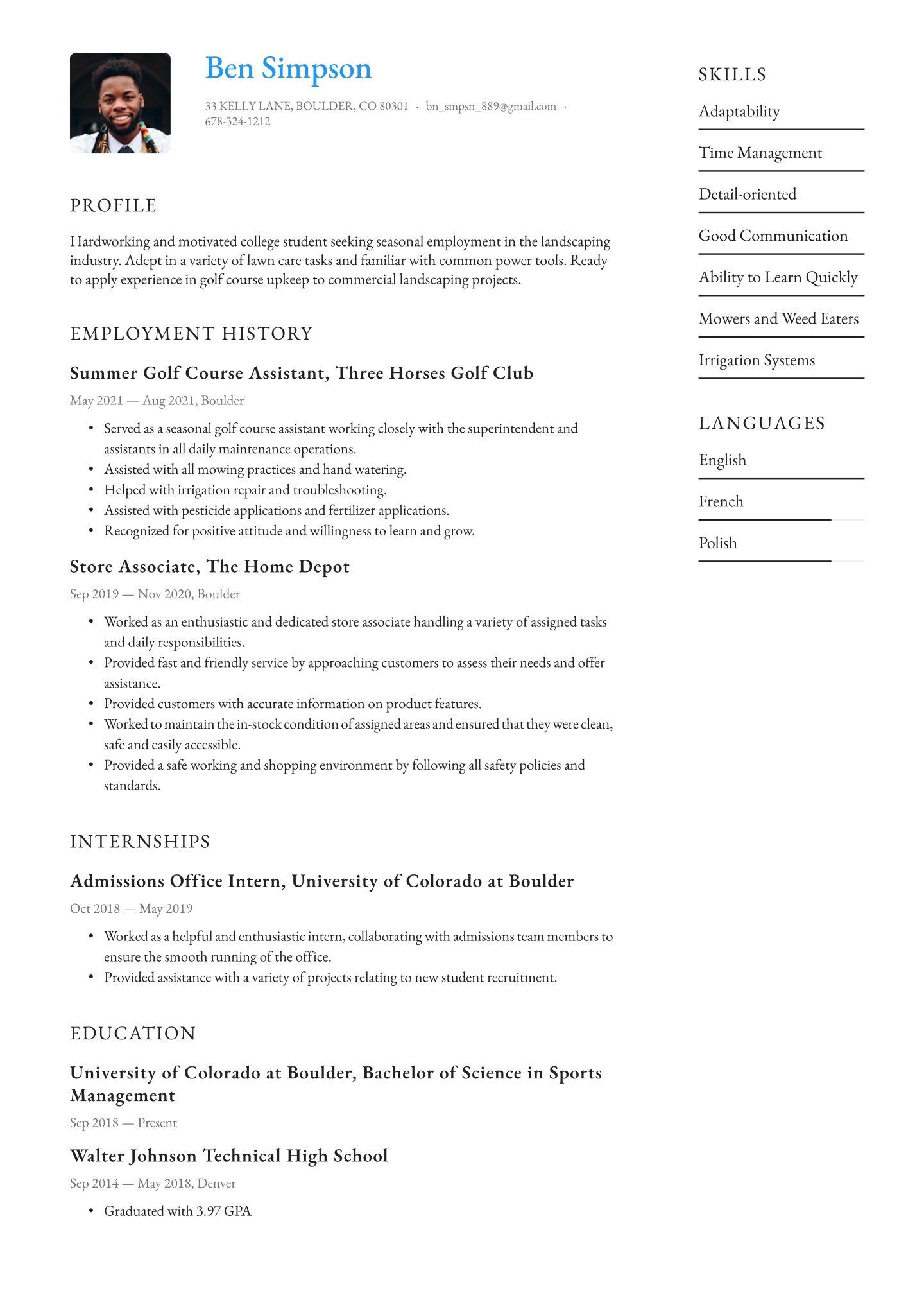Embarking on the quest for your first summer job is an exciting step, offering invaluable experience and a taste of the professional world. However, the first hurdle often involves crafting a compelling CV, especially when you might feel you lack significant work history. Don’t let that deter you! Every successful career starts somewhere, and your CV is your chance to make a powerful first impression, highlighting your potential, enthusiasm, and transferable skills.
This article will guide you through creating an effective CV that stands out to potential employers, even if your experience is primarily academic or volunteer-based. We will focus on what to include, how to structure it, and key tips to ensure your application gets noticed, setting you on the path to securing that coveted summer position.
Crafting Your First Impression: What to Include
When applying for a summer job, employers understand that students might not have extensive professional experience. Therefore, your CV needs to emphasize your strengths, academic achievements, extracurricular activities, and any volunteer work. These elements, though not traditional employment, showcase valuable skills like teamwork, responsibility, time management, and initiative. Think about the skills you’ve developed through school projects, clubs, or helping out in your community; these are all relevant.
The goal is to demonstrate that you are a motivated, reliable, and capable individual eager to learn and contribute. A well-structured CV can effectively communicate this, paving the way for an interview. It’s about translating your life experiences into professional attributes that align with the job requirements.
Contact Information and Personal Statement
The very top of your CV should clearly display your contact information. This includes your full name, phone number, professional email address, and optionally, your LinkedIn profile URL if it’s professional and up-to-date. Ensure your email address is appropriate (e.g., [email protected], not ‘[email protected]’).

Following your contact details, a concise personal statement is crucial for students. This short paragraph (3-4 lines) acts as your elevator pitch, summarizing who you are, what you’re seeking, and what you can offer. For a student summer job, it should convey your enthusiasm, highlight key skills you possess (even if from non-work contexts), and explain why you’re interested in the specific role or industry.
For example, you could mention:
- Your current academic pursuits and relevant subjects.
- One or two key skills (e.g., strong organizational skills, quick learner, excellent communication).
- Your objective for the summer job (e.g., gain practical experience, develop specific skills, contribute to a team).
Education and Experience
Your education section is paramount. List your most recent academic institution first, including the name of the school, the degree or program you are pursuing, and your expected graduation date. If you have particularly strong grades or specific relevant coursework, feel free to include them. You can also mention any academic awards or distinctions.
When it comes to experience, don’t limit yourself to paid employment. Think broadly! This section should include:
- **Volunteer Work:** Any time you’ve dedicated to a charity, community event, or school initiative. Describe your responsibilities and the impact you made.
- **Extracurricular Activities:** Participation in sports teams, clubs, student government, or school plays. These demonstrate teamwork, leadership, dedication, and time management.
- **School Projects:** Group projects or individual assignments where you applied specific skills (e.g., research, presentation, problem-solving).
- **Part-time Jobs (if any):** Even if it was babysitting or lawn mowing, describe the responsibilities and skills gained.
For each entry, use action verbs to describe your role and achievements. Instead of “Responsible for,” try “Managed,” “Organized,” “Assisted,” “Coordinated,” or “Developed.” Focus on what you *did* and the *impact* of your actions.
Making Your CV Shine: Tips for Success
A good template provides a foundation, but truly making your CV stand out involves a bit more effort and strategic thinking. One of the most important aspects is tailoring your CV for each specific application. Resist the urge to send out a generic document. Take the time to read the job description carefully and identify the key skills and qualities the employer is looking for. Then, adjust your personal statement, skill list, and the descriptions of your experiences to highlight how you meet those requirements. This shows genuine interest and makes your application much more relevant.
Another powerful tip is to focus on achievements rather than just responsibilities. For example, instead of saying "Helped organize school events," say "Successfully organized three major school events, coordinating over 50 volunteers and attracting 300+ attendees." Even if you don’t have quantifiable results, think about the positive outcomes of your actions. Did you improve something? Did you complete a task efficiently? Did you receive positive feedback? Frame your experiences in terms of accomplishments to demonstrate your value.
Presentation matters immensely. Your CV should be clean, easy to read, and professionally formatted. Use a consistent font and font size, and ensure there’s enough white space to prevent it from looking cluttered. Proofread your entire document meticulously for any typos or grammatical errors. A single mistake can undermine your professionalism. It’s often helpful to ask a parent, teacher, or friend to review it as well, as a fresh pair of eyes can catch things you might have missed. For a student summer job, a one-page CV is usually sufficient.
Finally, remember that the CV is your initial introduction. While it doesn’t need to list every single thing you’ve ever done, it should create enough intrigue to land you an interview. Be confident in highlighting your unique skills and personality. The employer is looking for potential and a good fit for their team, so let your enthusiasm for the role shine through your application.
Securing a summer job is a fantastic opportunity to gain new skills, meet new people, and earn some money. By investing time in creating a well-crafted CV that truly represents your abilities and aspirations, you significantly increase your chances of success. A thoughtful application shows prospective employers your dedication and readiness to embrace new challenges.
